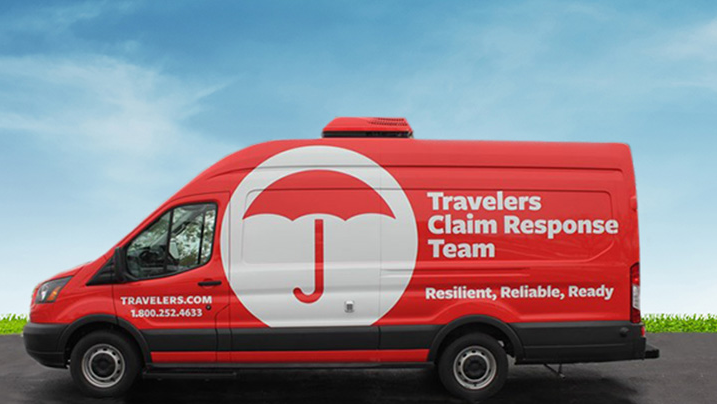Eco-Efficient Operations

Highlight
55%
Reduction in the company’s Scope 1 and 2 emissions for owned operations since 2011
At Travelers, we look for cost-effective ways to minimize our impact on the environment, which can also reduce our operating expenses, without compromising on our promise to customers, communities and employees.
Approach
As an insurer, most of our Scope 1 and 2 greenhouse gas (GHG) emissions are from office activity and mobile combustion (e.g., company vehicles). While we strive to reduce our emissions, our primary climate-related risks and opportunities relate to our property insurance business and claim service, which we cover in the Climate Strategy, Disaster Preparedness & Response and Public Policy sections of this site.
Our Chief Administrative Officer, a member of the company’s Management and Operating Committees, oversees the Corporate Services team. This team regularly monitors and analyzes our operations and facilities to identify ways for us to operate more efficiently, reduce our environmental impact and lower our operating expenses. We prioritize projects based on their expected financial impact; our efforts to reduce our energy consumption and waste not only reduce our environmental impact but also lower our operating expenses. Our GHG Inventory & Goals page summarizes our progress to reduce direct and indirect GHG emissions and references our goal of becoming carbon neutral across our owned operations by 2030.1
While the pandemic resulted in decreased in-office activity, mobile combustion and business travel, these activities have largely returned to more normal levels, and we continue to work actively on reducing our environmental impact. Our open workspace environment reduces our footprint and incorporates enhanced technology, including remote collaboration tools and video-enabled conference rooms, to reduce nonessential business travel. In addition, we provide incentives to our employees to use mass transit alternatives and offer parking incentives for carpoolers.
In 2019, we also began to reduce our environmental impact by encouraging our personal insurance customers to convert to paperless billing. We committed to fund the planting or conservation of one tree for every paperless billing conversion in Personal Insurance. As of 2024, we have funded the planting or conservation of more than 5 million trees across 18 U.S. states and Canada through our partnership with American Forests and the U.S. chapter of 1t.org. Our current commitment is to fund the planting or conservation of up to 10 million trees by 2030. This initiative is just one example of our commitment to aggressively seek ways to create shared value – in other words, ways to simultaneously protect our environment, create a streamlined experience for our customers and increase shareholder value.
1Refers to Scope 1 and Scope 2 GHG emissions from owned operations. Owned operations do not include real estate holdings for investment purposes.
More about eco-efficient operations
Environmental policy & management system
The Travelers Environmental Policy outlines some of the steps we take to operate more efficiently and in an environmentally conscious manner.
GHG inventory & goals
In recent years, Travelers has implemented various emissions reduction initiatives.
Water & waste
We see many opportunities to align our long-term financial interests with responsible water use and waste disposal, creating shared value for our shareholders and the environment.
Illustrative initiatives
Greening Claims
Monitoring the Environmental Impact of Our Vehicle Usage

Office Renovations
Boosting Engagement and Saving Energy

American Forests Partnership
Partnering for a Purpose – Helping to Reforest North America
